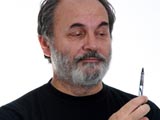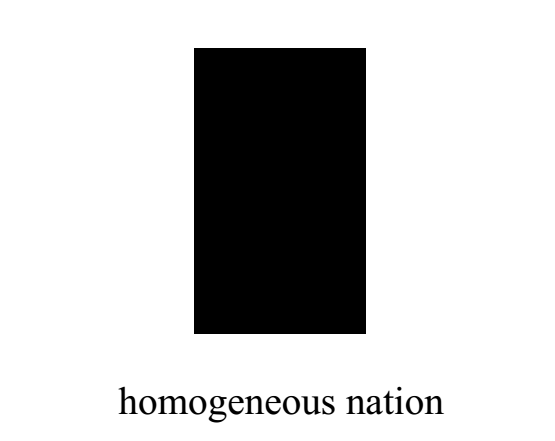Dynamics of Life and a Bridge
by Tarık Günersel / April 25, 2014 / No comments
Tarık Günersel shares two excerpts from his life guide To Become: A condensed version of the book of Ecclesiastes and an old woman’s advice from the anonymous Altaic Epic.
The Dynamics of Life
… necessitate a bridge between the growing avalanche of information and the immediate need to take concrete steps. Values, fears, hopes, and habits mostly influenced by parents and role models, teachers, peers, stories, ideologies, religions, opposing historical accounts, political parties and other organizations, theorists, commentators, columnists, consultants (and rarely, poets, philosophers, and scientists) have functioned partly in relation to such a need.

- Life is words in action, literature is action in words.
- Humans are about to destroy their spaceship Earth. Some of them are aware of this and they try to change the course of events. Will they succeed? Will more humans be alarmed and do something?
- Literature is vital and translators are messengers of world peace.
- Though I shall focus on the literary scene in Turkey and its problems regarding freedom of expression, I shall not omit the other parts of our planet. Today local is global and vice versa.

- Tarık Günersel is a poet, playwright, aphorist, librettist and short story writer. He is the president of PEN Turkey and an ex-member of the PEN International Board. He studied English Literature at Istanbul University. A self-exile after the military coup in 1980, he spent four years in Saudi Arabia with his wife Füsun and their daughter Barış, teaching English. A dramaturg at Istanbul City Theater since 1991, he has acted on stage and screen and directed some of his plays. He proposed World Poetry Day in 1997 which was accepted by PEN International and declared by UNESCO as the 21st of March. His translations into Turkish include works by Samuel Beckett, Vaclav Havel and Arthur Miller. His works include The Nightmare of a Labyrinth (mosaic of poems and stories), and How’s your slavery goin’? His Oluşmak (To Become), a “life guide for myself,” includes ideas from world wisdom of the past four millennia. He has recently initiated the Earth Civilization Project with the support of several intellectuals from various parts of the planet.
When, at 13, I read Bertrand Russell’s Why I am Not a Christian, I refused to limit myself to any given set of formulations that promised truth, the right path, and eternal comfort. Instead I decided to contribute to the formation of some sort of “freedom ethics.” At 20, Towards My Own Constitution was put into words, followed, at 40, by a collection of my aphorisms entitled Space Consciousness. At 60 I tried to curate a selection of ideas from five millennia of the world’s wisdom, in addition to my thoughts. That project, To Become, is a life guide-in-progress for myself and whoever wishes to make use of it.
Here are two parts from its 160 pages. Though I am a naturalist, it’s my ethical duty to try to remain faithful to the mentality of theist thinkers—as I have done while paraphrasing the text from Ecclesiastes. I will be happy to revise and develop it if criticism is shared with me.
Ecclesiastes–Briefly Revisited
There is nothing new under the sun.
The past generations are forgotten, gone.
The future ones will also be forgotten.
We try to catch winds as they pass by.
Idiot or wise, won’t each one die?
What’s the gain? All is in vain.
Everything has its time:
birth, death
destruction, construction
mourning, play
search, giving up
silence, talk
love, hate
war, peace.
Time.
Live wisely—in harmony with God.
Joy is no crime.
Eventually
even a grasshopper feels heavy.
Passion weakens. And we go
as we came from mother’s womb
without taking anything to the tomb.
Simply nothing is left from all these.
Meaning diminishes as words increase.
*
Old Woman’s Advice
A brief excerpt from the anonymous Altaic Epic:
Don’t forget your home, my dear child
You will have water thanks to seventy rivers
You can find refuge thanks to seven mountains
Show respect to your elders
and affection to children
Don’t be aggressive when you are strong
power may easily vanish
You’ll fall into a trap if you turn into a wolf
Wait for the right moment if you must hit
Always choose the right words
Look around before you shoot an arrow
Remember, my child, don’t forget your home.
*
Dear Earthlings, these are two of the parts of my bridge-in-progress between the dynamics of life and my responsibility of action. The 11th Century Uyghur thinker Yusuf Has Hajib’s Knowledge for Happiness and my poetic essay “Letter to My Grandchild” are among the others.





